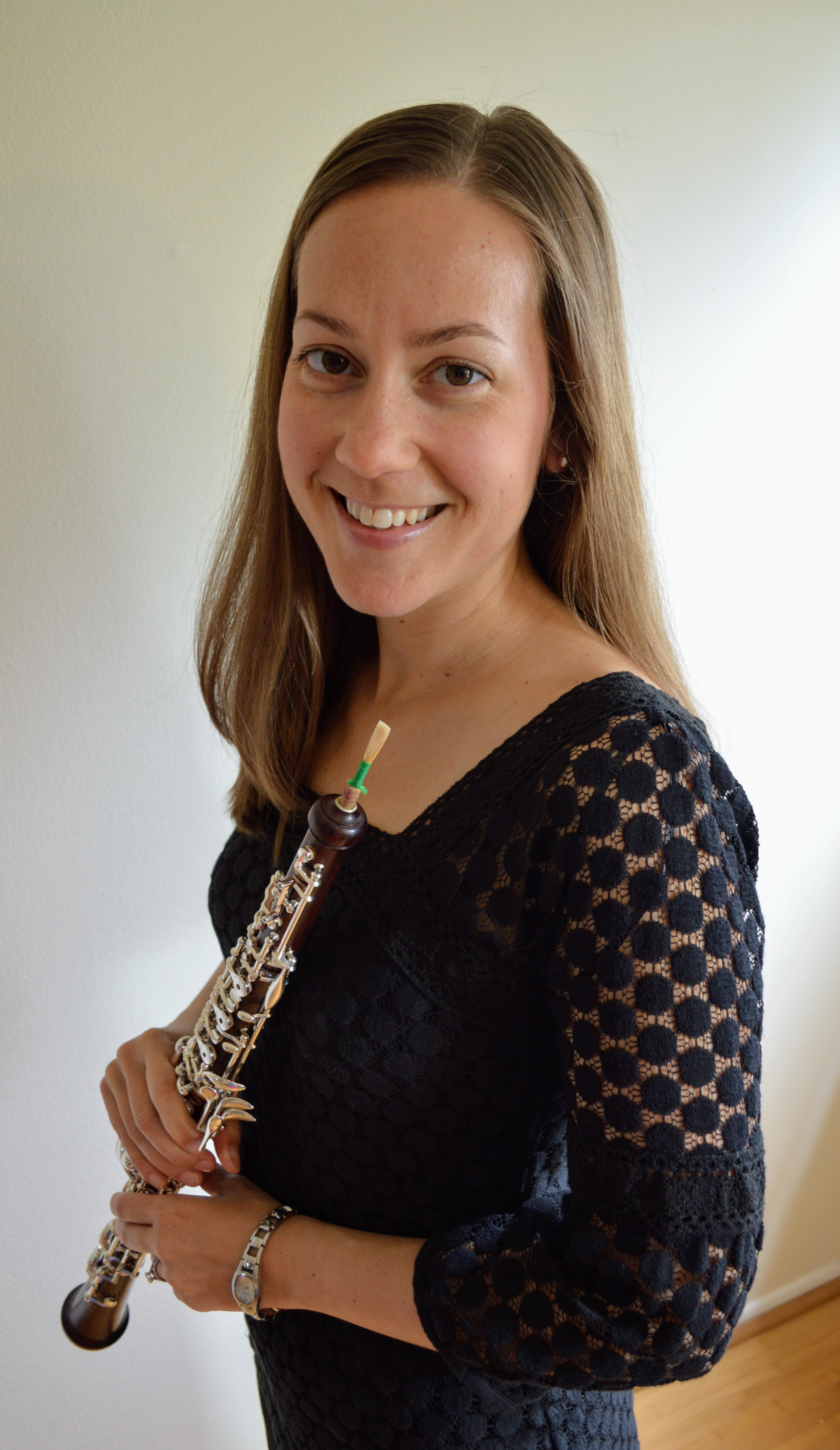
Master Classes
Noelle is not currently accepting any new students into her private studio. She is however, available
to present master classes on topics ranging from instrument maintenance, adjustment, and repair to performance,
reeds, and mental preparation for your college's oboe studio. She has been featured at double reed day events
at Shenandoah University, and has presented master classes at The Ohio State
University, University of Maryland, and University of Delaware.
Dr. Drewes was an Adjunct Assistant Professor at the Sunderman Conservatory of Music at Gettysburg
College from 2020-2024, where she taught oboe lessons and studio classes and was a resident artist member
of the Sunderman Wind Quintet.
Her extensive teaching experience dates back to 2007, when she taught at DeMatha High School for eight years,
and Bishop McNamara for eight years, and maintained a private/home teaching studio as well.
Noelle's Teaching Philosophy
Becoming a skilled, well rounded and versatile musician is the goal. This will take practice. The teacher is
there to guide, instruct, and show the student the best ways to practice, but it is the student that ultimately
has to do that work. The more effort you put in, the more you're likely to get out. Consistent focused work will
pay off over time; don't expect immediate results, but do trust in the process.
By focusing on music fundamentals, you can develop the skills to move beyond technical limitations,
to performing any solo, chamber, band, or orchestral repertoire with confidence. Concepts I teach span from the
physical (posture, embouchure, air support, injury prevention, etc.) to the
mental (focus, time management, collaborating with others, handling nerves, mindset,
etc.) and of course the musical (tone quality, rhythm, articulation, dynamics,
intonation, relevant music theory and history) as well as the mechanical (instrument
maintenance and adjustments).
Oboists additionally have the challenge of needing a quality well balanced reed to do just about anything well
on the instrument. As such, the art of reed making is an integral part of my teaching. Reeds sadly do not last
forever, in fact they have a very short lifespan, can break easily, and are somewhat temperamental. It is
therefore a necessity to understand how reeds work, to know how to make and manipulate them, and to have a
supply of multiple working reeds at all times. For many, anxiety and mystery surround reed making. While it's true
that no two pieces of cane are identical, there are specific steps and measurements that can be learned to help
produce more consistent results and perhaps help de-mystify the reed making process.
Playing music with others and frequent listening are paramount! I encourage my students to take advantage of any
performing opportunities you can: duets, chamber music, large ensembles, etc. Listen to your teacher, attend live
concerts, follow oboists on social media, and check out recordings. Listening to other professional oboists play
and speak as often as possible (people doing what you want to be doing) only makes sense.
I ask students to come to lessons with a positive and inquisitive attitude, to be diligent in their work,
and to be both honest and kind to others and to themselves. This mindset most often leads to the quickest
improvement. You will need to practice a lot, but do not forget to get out of the practice room from time to
time as well. Broadening your perspective with a variety of life experiences and interests is healthy, and can
only help to enhance the depth of your music. Lastly, I implore my students to regularly record themselves
and to keep an "oboe journal" to compile questions and realizations, to help track progress,
reed making breakthroughs, and to ultimately help them simply become their own teacher... so that they may
enjoy a lifetime of successful and enjoyable music making with the oboe.